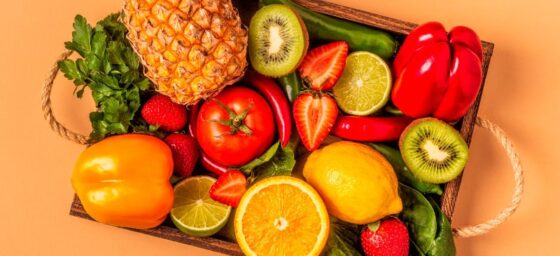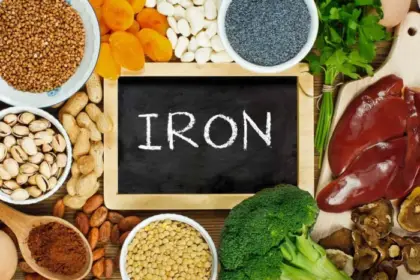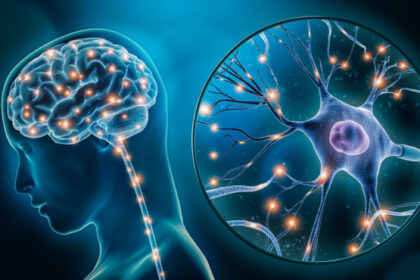Did you know that Vitamin C is involved in formation of collagen, absorption of iron, the immune system, and the maintenance of bones and teeth. It helps to strengthen your immune system and
Early Signs You Are Vitamin C Deficient
Signs of Vitamin C Deficiency:
- Slow wound healing: Vitamin C plays an important role in collagen synthesis, which is essential for wound healing. A deficiency in vitamin C can lead to slow wound healing.
- Scurvy: Scurvy is a severe form of vitamin C deficiency. Symptoms of scurvy include weakness, fatigue, and swollen, bleeding gums.
- Dry and splitting hair: Vitamin C helps in the production of sebum, which keeps hair moisturized. A deficiency in vitamin C can cause dry and splitting hair.
- Joint pain and swelling: Vitamin C has anti-inflammatory properties, and a deficiency in vitamin C can lead to joint pain and swelling.
- Easy bruising: Vitamin C is important for the production of collagen, which helps keep blood vessels and skin strong. A deficiency in vitamin C can lead to easy bruising.
Vitamin C is a crucial nutrient for the human body, with a wide range of benefits. One of its most important roles is in collagen formation. Collagen is the most abundant protein in the body, found in our skin, bones, muscles, tendons, and ligaments. It gives our tissues structure and strength, and plays a key role in wound healing. In this article, we will discuss how vitamin C plays a vital role in collagen formation.
Collagen Formation
Collagen is made up of long chains of amino acids, which are the building blocks of proteins. There are over 20 different types of collagen, but the most common types in the body are types I, II, and III. These types of collagen are made up of three chains of amino acids that twist together to form a triple helix structure.
Collagen formation is a complex process that involves several steps. The first step is the production of procollagen, which is a precursor to collagen. This step takes place in the endoplasmic reticulum of the cell. Once procollagen is formed, it is transported to the Golgi apparatus, where it is modified and packaged into vesicles.
The next step is the secretion of procollagen into the extracellular matrix. Here, enzymes called procollagen peptidases cleave the ends of the procollagen molecule, forming collagen. Collagen then self-assembles into fibrils, which give tissues their strength and structure.
Vitamin C and Collagen Formation
Vitamin C plays a crucial role in collagen formation. It is required for the hydroxylation of proline and lysine amino acids in the procollagen molecule. Hydroxylation is the process of adding a hydroxyl (-OH) group to an amino acid. This modification is necessary for the formation of stable triple helix structures in collagen.
Without vitamin C, the hydroxylation of proline and lysine cannot occur, and the procollagen molecule cannot form a stable triple helix structure. This leads to the production of abnormal collagen fibrils, which are weak and easily degraded.
A deficiency in vitamin C can lead to a condition called scurvy, which is characterized by the breakdown of collagen in the body. Symptoms of scurvy include weakness, fatigue, joint pain, and swollen, bleeding gums.
Vitamin C is also involved in other aspects of collagen formation, including the secretion of procollagen into the extracellular matrix. It has been shown to enhance the expression of enzymes involved in collagen synthesis and improve the quality of collagen fibrils.
In addition to its role in collagen formation, vitamin C has other important functions in the body. It is a powerful antioxidant, helping to protect cells from oxidative damage. It also plays a role in immune function, helping to fight off infections and diseases.
In addition to its role in collagen formation, vitamin C also plays a crucial role in the absorption of iron. Iron is an essential mineral that is needed to transport oxygen throughout the body. Vitamin C helps to convert iron from its non-absorbable form (ferric) to its absorbable form (ferrous), making it easier for the body to absorb. This is especially important for individuals who are at risk of iron deficiency, such as vegetarians or those with gastrointestinal disorders.
Furthermore, vitamin C is also known for its role in supporting the immune system. It helps to stimulate the production of white blood cells, which are responsible for fighting off infections and diseases. Vitamin C also helps to protect immune cells from oxidative damage, which can impair their function.
Lastly, vitamin C is essential for the maintenance of bones and teeth. It is involved in the production of collagen, which is a key component of bone and dental tissue. Vitamin C also helps to increase calcium absorption, which is important for bone health. Low vitamin C levels have been associated with an increased risk of osteoporosis, a condition characterized by weak and brittle bones.
Top Foods with Vitamin C:
- Citrus fruits: Citrus fruits such as oranges, lemons, and grapefruits are rich in vitamin C.
- Kiwifruit: Kiwifruit is another excellent source of vitamin C. One medium-sized kiwifruit contains about 70mg of vitamin C.
- Guava: Guava is a tropical fruit that is rich in vitamin C. One guava contains about 126mg of vitamin C.
- Papaya: Papaya is a tropical fruit that is rich in vitamin C. One medium-sized papaya contains about 95mg of vitamin C.
- Strawberries: Strawberries are not only delicious but are also rich in vitamin C. One cup of strawberries contains about 85mg of vitamin C.
- Bell peppers: Bell peppers are another great source of vitamin C. One medium-sized red bell pepper contains about 152mg of vitamin C.
- Broccoli: Broccoli is a cruciferous vegetable that is rich in vitamin C. One cup of cooked broccoli contains about 81mg of vitamin C.
- Tomatoes: Tomatoes are not only rich in vitamin C but also contain other beneficial nutrients such as lycopene. One medium-sized tomato contains about 16mg of vitamin C.
- Spinach: Spinach is a leafy green vegetable that is rich in vitamin C. One cup of cooked spinach contains about 17mg of vitamin C.
- Kale: Kale is another leafy green vegetable that is rich in vitamin C. One cup of cooked kale contains about 80mg of vitamin C.
3 Special Superfoods Particularly Rich in Vitmain C
Camu camu, acerola cherry, and amla are all fruits that are known for their high vitamin C content and various health benefits. Camu camu is a small berry that is native to the Amazon rainforest, and it contains up to 60 times more vitamin C per serving than an orange. Acerola cherry is another fruit that is packed with vitamin C, containing up to 30 times more than an orange. Amla, also known as Indian gooseberry, is a fruit that has been used for centuries in Ayurvedic medicine and is one of the richest sources of vitamin C in the world.
These fruits have been found to have a range of health benefits, including boosting the immune system, improving skin health, and reducing inflammation in the body. They have also been shown to have antioxidant properties, which can help to protect cells from damage caused by free radicals. Additionally, these fruits have been associated with improved digestion and increased energy levels. Incorporating these fruits into your diet can be a great way to increase your vitamin C intake and support your overall health and wellbeing.
The vitamin C supplement that I take is a combination of acerola cherry, camucamu and amla. You can get 15% off this supplement for a limited time by clicking here.
Click Here To Get 15% Off The Essential C Complex Today!
In conclusion, vitamin C is an essential nutrient that plays an important role in various bodily functions. A deficiency in vitamin C can lead to several health problems, but consuming foods rich in vitamin C can help prevent deficiency and keep you healthy. By incorporating the above-mentioned foods into your diet, you can ensure that you get enough vitamin C to maintain good health.
Recommended Product:





